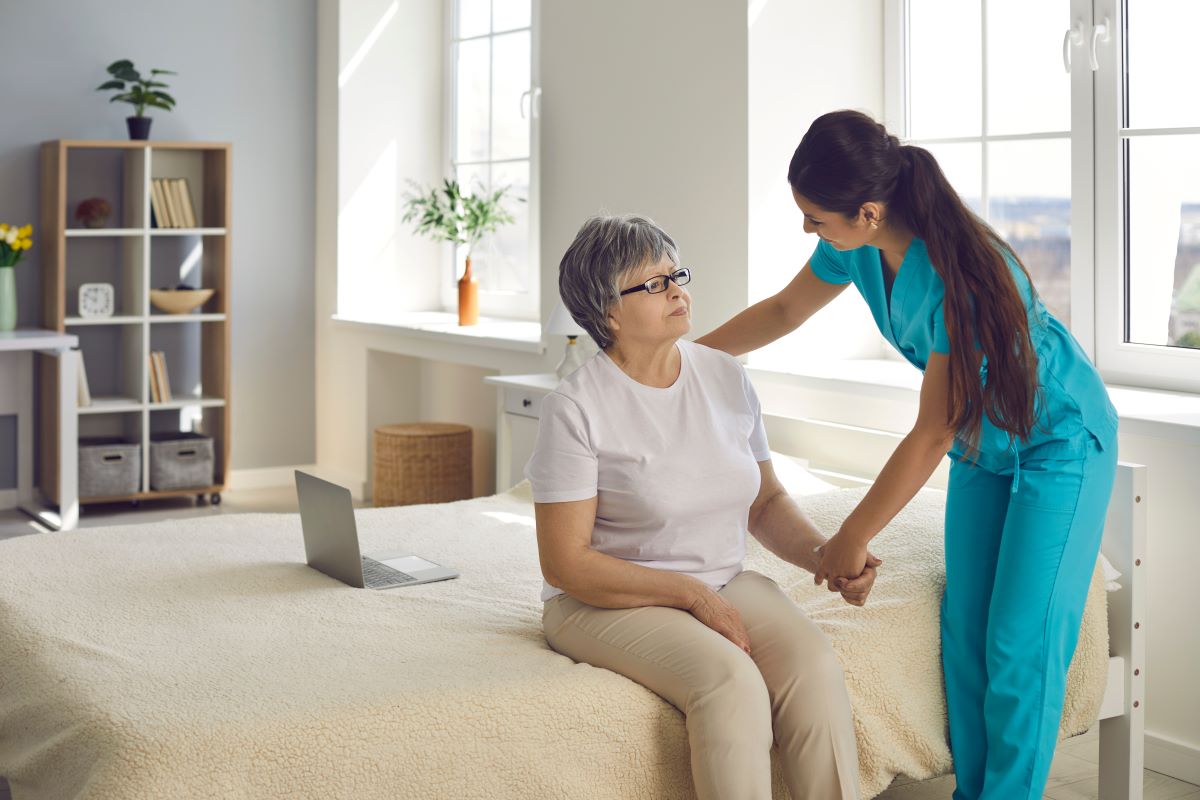What Is a Healthcare Ombudsman? Georgia Guide for Facilities

The federal Long-Term Care (LTC) Ombudsman Program was created under the Older Americans Act to help prevent abuse and mistreatment of residents in long-term care settings. The program requires each state to administer its own program to protect older adults through the services of a healthcare ombudsman. Georgia’s program is designed to not only uphold residents’ rights, but also help facilities improve regulatory compliance and care delivery.
As a facility leader in Georgia, working with your local ombudsman can bring many benefits to your operations and enhance the quality of life for your residents. We’ll provide an overview of how Georgia’s program operates and what you can expect when working with an ombudsman.
What Is the Georgia Ombudsman Program?
The principal function of Georgia’s LTC Ombudsman Program is to informally investigate and help resolve complaints by, or on behalf of, residents across various LTC settings. This includes environments such as assisted living facilities, nursing homes, and personal care homes.
The Office of the State LTC Ombudsman operates within Georgia’s Department of Human Services’ Division of Aging Services. Under the oversight of this office, each staff member and volunteer is trained to work as a healthcare ombudsman. Georgia’s Ombudsman office administers contracts with various Area Agencies on Aging (AAA) and non-profit organizations to deliver services for residents across the state.
What Does an Ombudsman Do?
Georgia’s ombudsman program is quite comprehensive, providing assistance and advocacy efforts on a number of fronts. In addition to helping investigate and resolve complaints across LTC settings, a state ombudsman also:
- Identifies systemic LTC-related issues that require improvement.
- Helps older adults, families, and friends find suitable LTC services.
- Conducts routine visits to monitor conditions in LTC settings.
- Provides community outreach services to educate older adults on their rights.
- Delivers in-house training to LTC staff on resident rights and abuse reporting.
- Works with regulatory agencies and organizations to improve LTC-related laws.
- Oversees advisory councils that regularly gather local residents and families.
Who Does an Ombudsman Work With?
The ombudsman office will advise or work with anyone who has concerns about the rights of older adults within the state. Whether you’re a resident, family member, friend, staff, or facility leader, your local ombudsman is here to help you with any LTC-related issues or questions. Examples of individuals who may want to reach out to an ombudsman include:
- Facility leaders seeking guidance on local laws impacting their residents.
- Staff members concerned about the treatment of residents at their facility.
- Residents, families, and friends who wish to submit a complaint about LTC services.
- Individuals who want to get more involved in advocating for the rights of older adults.
- Government leaders seeking advice on how to amend local policies and laws.
What Types of Issues Does an Ombudsman Resolve?
The Georgia ombudsman office publishes annual reports detailing statistics about its complaint processing system. This can be a helpful reference for facility leaders looking to proactively identify and avoid common issues impacting residents across the LTC landscape. The most common LTC-related issues investigated by the ombudsman office include:
- Inappropriate discharge and evacuation.
- Failure to respond to requests for assistance.
- Lack of dignity and respect from staff.
- Issues with food services or personal hygiene.
How Do I Contact My Local Ombudsman?
If you’re seeking assistance from a Georgia ombudsman, reach out to your state representative directly with any complaints, concerns, or questions. We’ve listed the Georgia ombudsman phone number, email, mailing address, and website details in the table below.
|
|
|
|---|---|
| Ombudsman Phone Number: | (866) 552-4464 |
| Ombudsman Email: | Melanie.McNeil@osltco.ga.gov |
| Ombudsman Mailing Address: | 2 Peachtree St., NW
33rd Floor Atlanta, Georgia 30303 |
| Ombudsman Website: | https://www.georgiaombudsman.org |
If you need to contact a local or regional health ombudsman, you can find their contact details on the office’s official website. To find the ombudsman in your service area, you can utilize the county search function at the bottom of the page.
Tips for Facilities Working With an Ombudsman
If an individual files a complaint about your facility, you may need to undergo an investigation by an ombudsman. Georgia’s program is designed to help both facilities and residents, so it’s important to remember that the ombudsman wants to work with you and not against you. Follow these tips to get the most out of these services:
- Work collaboratively. Cooperate with your ombudsman by providing any relevant information regarding the issue at hand. This will help you both get to the root of the issue and resolve it in a timely manner.
- Implement changes. If an issue is identified, follow the advice of your ombudsman to make any necessary changes. This will help you enhance the safety and quality of your care, improving your overall operations.
- Utilize additional services. It’s never too early to work on improving your services. Beyond investigations, you can utilize free resources from the Georgia ombudsman office — such as their facility consultations and staff training — to help prevent future issues from occurring.
Optimize Care Delivery for Your Residents
Take steps toward optimizing the safety and quality of your operations by working collaboratively with your local ombudsman. Georgia facilities can learn additional tips and strategies to improve resident care through IntelyCare’s free newsletter.

